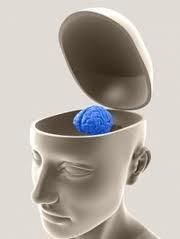Mild Cognitive Impairment
High Blood Pressure and Diabetes Linked to Cognitive Decline
High blood pressure and diabetes can damage the brain and lead to memory loss.
Posted March 22, 2014

High blood pressure and diabetes have become a national epidemic that contributes to millions of deaths annually. According to the American Heart Association, adults with diabetes are two to four times more likely to have heart disease or a stroke than adults without diabetes.
Heart diseases and stroke are the leading causes of death and disability among people with type 2 diabetes. In fact, at least 65 percent of people with diabetes die from some form of heart disease or stroke.
High blood pressure (hypertension) has long been recognized as a major risk factor for cardiovascular disease. When someone has both hypertension and diabetes—which is a common combination—his or her risk for cardiovascular disease doubles.
High Blood Pressure and Diabetes Create a Double Whammy
In addition to the increased risk of cardiovascular disease and stroke caused by high blood pressure and diabetes, new research has found that these conditions also lead to brain shrinkage and cognitive decline. Two recent studies have discovered that people in middle age are particularly susceptible to the cognitive impacts of high blood pressure and diabetes.
A March 2014 study from the Mayo Clinic found that people who develop older age onset diabetes and have high blood pressure in middle age are more likely to have brain cell loss and other damage to the brain. This brain damage resulted in a higher percentage of problems with memory and thinking skills than in people who didn't have diabetes or high blood pressure.

The Mayo Clinic study, titled “Association of Type 2 Diabetes with Brain Atrophy and Cognitive Impairment,” was published in the online issue of the journal Neurology. The researchers found that when compared to people who did not have high blood pressure, people who developed high blood pressure in middle age were twice as likely to have areas of brain damage.
"Potentially, if we can prevent or control diabetes and high blood pressure in middle age, we can prevent or delay the brain damage that occurs decades later and leads to memory and thinking problems and dementia," says study author and Mayo Clinic epidemiologist Rosebud Roberts M.B., Ch.B.
For the study, thinking and memory skills of 1,437 people with an average age of 80 were evaluated. The researchers found that compared to people who did not have diabetes, people who developed diabetes in middle age had a total brain volume average of 2.9 percent smaller. In the hippocampus area of the brain, the volume was 4 percent smaller. Those with diabetes were also twice as likely to have thinking and memory problems.
"People who developed diabetes even in old age also were more likely to have areas of brain damage. Conversely, there were not many effects from high blood pressure that developed in old age," Roberts says. "Overall, our findings suggest that the effects of these diseases on the brain take decades to develop and show up as brain damage and lead to symptoms that affect their memory and other thinking skills. In particular, diabetes has adverse effects regardless of the age at which diabetes develops."
High Blood Pressure in Middle Age Linked to Biomarkers for Alzheimer’s Disease
People in middle age who have a high blood pressure measure called "pulse pressure" are more likely to have biomarkers of Alzheimer's disease in their spinal fluid than those with lower pulse pressure, according to a study published in the November 2013 online journal Neurology.

The study involved 177 people ages 55 to 100 with no symptoms of Alzheimer's disease. Participants had their pulse pressure taken and lumbar punctures to obtain spinal fluid. The researchers found that people who have higher pulse pressure are more likely to have the Alzheimer's biomarkers amyloid beta, or plaques, and p-tau protein, or tangles, in their cerebral spinal fluid than those with lower pulse pressure.
"These results suggest that the forces involved in blood circulation may be related to the development of the hallmark Alzheimer's disease signs that cause loss of brain cells," says study author Daniel A. Nation, PhD, of the VA San Diego Healthcare System. The relationship was found in people age 55 to 70, but not in people age 70 to 100. "This is consistent with findings indicating that high blood pressure in middle age is a better predictor of later problems with memory and thinking skills and loss of brain cells than high blood pressure in old age," Daniel Nation concluded.
Conclusion: Lifestyle Choices Can Lower Blood Pressure and Diabetes Risk

Luckily, there are many lifestyle changes that can help lower blood pressure and reduce the risk of developing type 2 diabetes. Simply creating daily habits that include regular physical activity, healthier food choices, and stress reduction can lower blood pressure and diabetes risk.
Regular aerobic activity, strength training, yoga, and mindfulness meditation can actually create an upward spiral of wellness and improved cognitive function. Exercise has been proven to stimulate neurogenesis (growth of new neurons) and improve brain connectivity.
If you’d like to read more on lifestyle choices that can improve your physical and cognitive well-being please check out my Psychology Today blog posts:
- "Eight Habits That Improve Cognitive Function"
- "Lifestyle Choices Can Cause Your Brain to Shrink"
- "Pumping Iron Can Help You Live Longer"
- “The Brain Drain of Inactivity”
- "What Is the Best Way to Improve Brain Power for Life?"
- “Scientists Discover Why Exercise Makes You Smarter”
- “Irisin: The ‘Exercise Hormone’ Has Powerful Health Benefits”
- “How Fit Are You? Your Answer May Reveal Dementia Risk”
- “Can Physical Activities Improve Fluid Intelligence?"
- “Yoga Has Potent Health Benefits”
- “Exercising at a “Conversational Pace” Is Good for Your Brain”
- “4 Lifestyle Choices That Will Keep You Young”
- “What Daily Habit Can Boost “Healthy Aging” Odds Sevenfold?”
Follow me on Twitter @ckbergland for updates on The Athlete’s Way blog posts.




